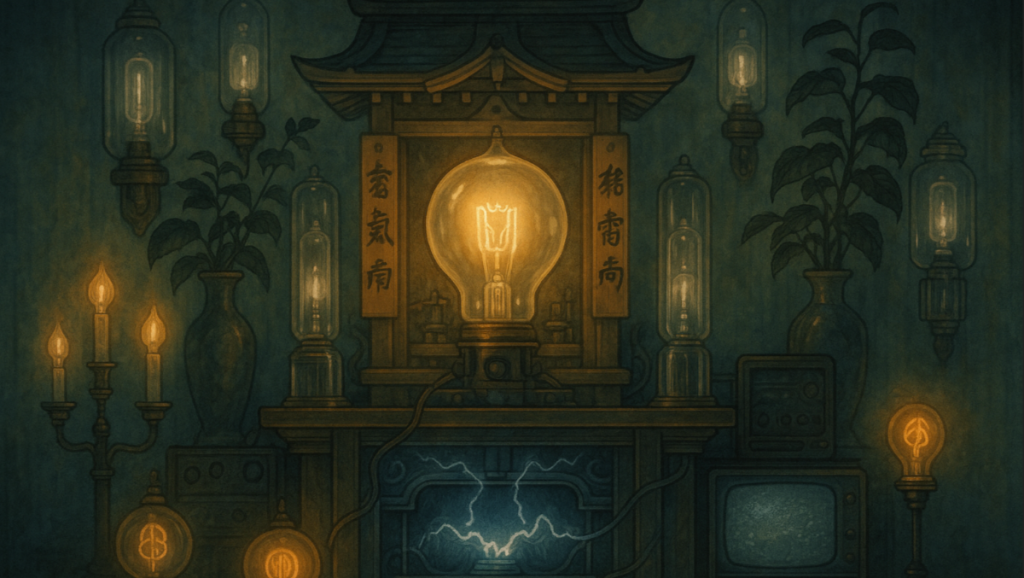
Scholars dismiss The Religion of the Electric Gods as a byproduct of a 1945 Japanese law code that granted tax exemptions to religious institutions without specifying exactly what constituted a religion. Indeed, groups such as the Imperial Way Secular-Religion of the Gods of Heaven and Earth, Yin and Yang, and Heavenly Imperial Shrine Agency (Kōdō-jikyō-jingi-On’yōryō-tensha-jingūshichō), whose verbose name was abbreviated to Kōdō-Jikyō or Imperialism, sold tax exemption licenses to restaurants, bars, and brothels, upsetting Japanese authorities who eventually disbanded the group as fraudulent.
The Religion of the Electric Gods and its apotheosis of Thomas Edison was no mere tax fraud. Its origins predate the 1945 law, and Edison was first worshipped in Osaka as a living god in 1928. The Religion of the Electric Gods faded, but Edison veneration continues today in several locations including a Kyoto-area Shinto shrine dedicated to the Bright God of Electric Light and Electromagnetic Waves.
I argue the cultural history of electricity can illuminate the complex interplay between “religion” and “science.”
